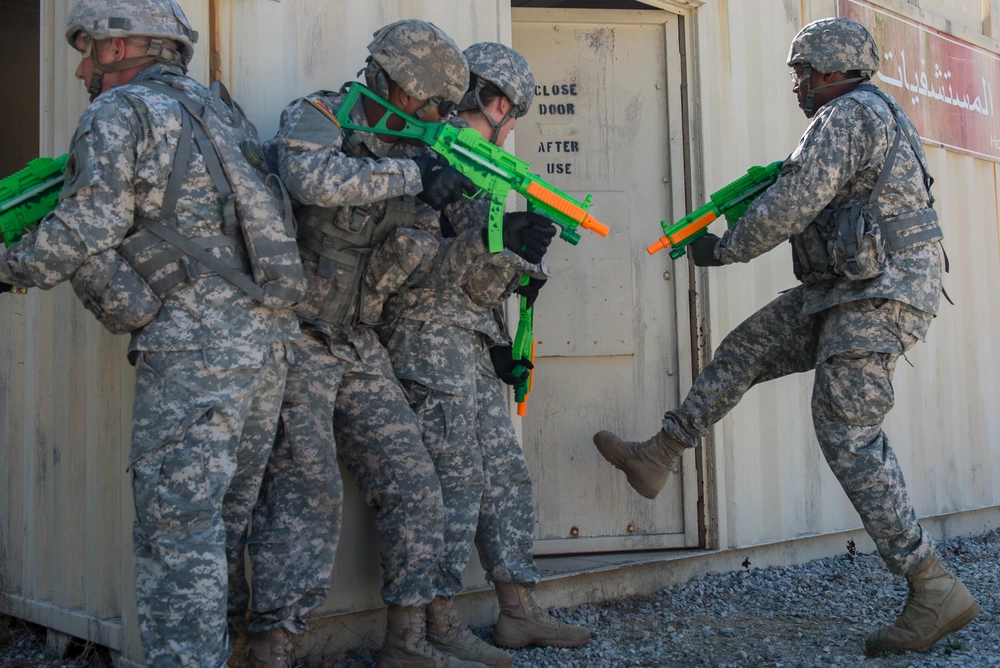Getting Started With VA Loan Benefits

VA Loan Benefits: Getting Started
Are you wondering how to get started with your VA home loan benefits? The most important thing to do starting out is to determine whether you are currently eligible to receive a VA Certificate of Eligibility (VA COE). Those who are eligible may apply for it may do so in a variety of ways, but you cannot apply until you have met the minimum time-in-service requirements needed.
These time-in-service requirements will vary depending on when you started earning credit for military service.
The specific requirements for becoming eligible for a VA COE are in their own separate article since there are many variables including whether you are Guard or Reserve, Active Duty, or a qualifying surviving spouse of a military member who died as a result of active duty.
For this article, the most important thing you need to know is that you’ll have to check your time-in-service against the requirements based on the “service era” when you joined (Vietnam War, for example, Desert Storm/Gulf War era, etc.).
Getting Started With Your VA Loan Benefits
Can you get a head start on your VA home loan benefits by starting the application process before you have officially been granted a VA COE?
Those who have just joined the military as either an active-duty recruit or a Guard or Reserve member may be tempted to get a jump on the process, but the VA Lender’s Handbook, VA Pamphlet 26-7, says this cannot happen.
“The lender must ensure the applicant is an eligible Veteran before an appraisal is ordered, the loan cannot be processed or closed. Lenders should never close a loan before they establish eligibility. VA cannot guarantee a loan for an ineligible Veteran”.
Your loan officer’s hands are tied for much of the application process until she can obtain your VA COE. One thing to keep in mind? Your loan officer may be able to help you get your COE when the time is right, so don’t think you can’t talk to a loan officer about your options. It’s just that you can’t begin the application process in earnest without the COE.
Counting Down Toward VA Loan Eligibility As A New Service Member
A common question at this state? When does the clock start counting down toward VA loan eligibility?
In this context, we are not talking about the minimum time you must serve (see above) but rather when the waiting period begins and when it ends before. Some mistakenly assume the clock starts the moment you are committed to military duty. But this is not true.
In general, if you have not graduated from basic training and you have not graduated from any required technical training programs for a career field or military specialty, your clock has NOT started ticking yet. You must exit the initial training phase of your first months on duty first.
To be absolutely clear: your time-in-service countdown begins AFTER basic training, technical school, A-school, AIT, etc. Once you have met the requirements, apply for your COE with the Department of Veterans Affairs online, by mail, or via the lender.
After You Receive Your VA COE
The Certificate of Eligibility establishes you as being eligible for the VA loan program, but it does not guarantee loan approval. You’ll need to prepare for a home loan like you would for any major credit application:
- Work on your record of on-time payments for all financial obligations at least one year in advance of any home loan application;
- Begin budgeting and saving for your home loan closing costs and expenses
- Consider the type of home you want to buy
- Plan for the future: are you subject to deployment? Are you a retired military member planning to settle in one place for a long time? Are you starting a family or increasing one?
- Consider the type of property you want to buy (condo, townhome, farm residence, manufactured home, suburban house, etc.)
The fact that the VA loan program does not automatically approve all borrowers for home loans should convince some applicants to work on their financials a year or better before applying. However, not all do. While it is true that there is no VA-required minimum FICO score range for VA loan approval, your lender may require a credit score in the 600 range or better for more competitive rates and terms.
When you are ready to start looking for a lender you’ll want to shop around for the right one–not all participating VA lenders are alike and VA loan rules do NOT require all participating lenders to offer all VA loan products.
That means if you want to buy a mobile home and lot, for example, with a VA mortgage, but the housing market where you are searching doesn’t support such loans, you may have a hard time finding a VA lender who can help. The same is true for condo loans and other types of homes–if a housing market doesn’t have enough demand for a certain kind of property, a loan for it might be harder to locate.
Knowing Is Half The Battle
It pays to do some research on the property types you can and cannot purchase with a VA mortgage. For example, you may be allowed to purchase a farm residence with a VA loan but that loan will ONLY be issued for the residential value of the property.
Another thing worth knowing when you start out with a VA mortgage? Occupancy is required. You are not permitted to use your VA loan to buy a vacation home, a timeshare, or a bed-and-breakfast. You are required to occupy the home you buy with a VA loan or arrange to have eligible immediate family members occupy the home on your behalf.
But occupancy rules do NOT mean you are in trouble with your VA mortgage if you are deployed, reassigned, sent on temporary duty or TDY, etc.
Occupancy has more to do with your intent for the property at purchase time and far less to do with your miliary duty requirements. If you intend on buying a primary residence, the VA loan program can work for you even if you deployer or get stationed elsewhere.
VA home loans are also ONLY for properties that can be classified and/or taxed as real estate even if they are not taxed as such in the state they are located in. You cannot use a VA mortgage to buy an RV, houseboat, or any property that will not or cannot be fixed on a permanent foundation.
Did you know that VA home loans are possible between two or more veterans? And thanks to VA policy changes designed to streamline VA loan approval processes, these loans no longer require the VA to review the application prior to the lender’s approval. That can speed up the loan process for two or more veterans substantially.
Learn more: VA Loan Policy for Loans Between Two Veterans
For Those Getting Started With A VA Loan Upon Retirement or Separation
The timing of your VA loan application may be very important if you are retiring or separating from military service and have never used your VA mortgage benefits before. One issue to keep in mind? Your income and employment. The lender is required to verify your employment situation as part of the application. Do you plan to rely on your retirement pay and investments only after you return to civilian life? Or do you plan to re-enter the workforce?
Your lender may have a harder time approving your loan if you apply in the downtime between your last job and your next job unless you have income and cash reserves that allow the lender to justify the mortgage.
VA loan rules state that the lender must verify your employment including how long you have been in your current position.\
Applying for a VA mortgage after you have successfully re-entered the job market makes more sense than trying to convince the lender that you can afford the loan without the new job. Naturally, the rules are different when a military retiree does not intend to come back to the workforce and supplies their financials to the lender to show how they can afford the mortgage in retirement.
And you will be required to do so if that’s applicable to you. And that’s not just a condition of the VA home loan program, that’s fairly standard operating procedure for home loans in general.
What To Do Next
Once you know you are eligible to apply for a VA Certificate of Eligibility, it’s smart to shop around for a lender while you are also shopping around for a home. Treat them the same; compare prices, terms, and other variables. Once you have found a lender you can either get help obtaining your COE or apply for it yourself. There is no VA-required home loan private mortgage insurance and no VA-required down payment for typical VA loans.
But you may be able to save even more money upfront on your VA home loan if you are eligible to receive or currently do receive VA compensation for service-connected medical issues.
In such cases, you may be eligible to apply for a VA Loan Funding Fee Waiver. This can save you thousands of dollars on out-of-pocket costs and you should be sure to tell the lender that you want to apply for this exemption. Some veterans find that the VA experiences delays in issuing their VA disability ratings (the disability rating is crucial to the VA Loan Funding Fee exemption) and may actually close the mortgage without being assigned a VA rating. Does this mean the borrower must pay the VA loan funding fee?
Yes, it does, but the VA makes a provision to apply for a refund in such cases. The veteran is not entitled to an automatic funding fee refund. It must be applied for, but be sure to inform your lender in advance if you think the funding fee exemption may (or may not) get approved before the loan closes.
You’ll need to ask the lender about the specific procedure for paying, or being approved for the waiver of the funding fee.
RELATED:
- VA Loan Basics
- Best Practices for the VA Loan Process
- VA Loan: Can You Borrow More Than Your House is Worth?
- VA Loans for Mobile Homes and Manufactured Homes
About the author
Editor-in-Chief Joe Wallace is a 13-year veteran of the United States Air Force and a former reporter/editor for Air Force Television News and the Pentagon Channel. His freelance work includes contract work for Motorola, VALoans.com, and Credit Karma. He is co-founder of Dim Art House in Springfield, Illinois, and spends his non-writing time as an abstract painter, independent publisher, and occasional filmmaker.


